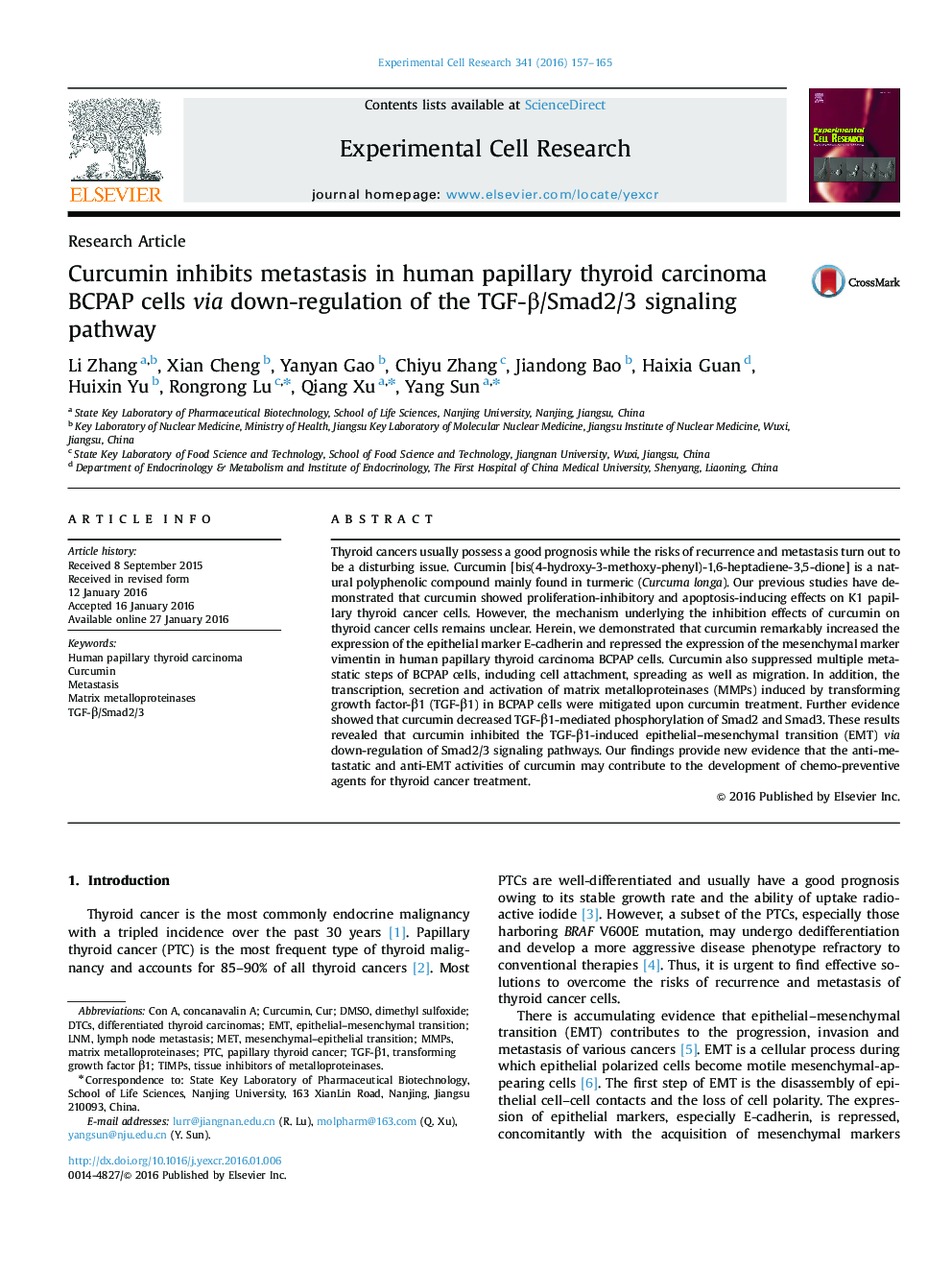| کد مقاله | کد نشریه | سال انتشار | مقاله انگلیسی | نسخه تمام متن |
|---|---|---|---|---|
| 2129997 | 1086516 | 2016 | 9 صفحه PDF | دانلود رایگان |

• Curcumin inhibits the adhesion, spreading and migration of BCPAP cells.
• Curcumin inhibits TGF-β1-induced EMT in BCPAP cells.
• Curcumin inhibits TGF-β/Smad2/3 signaling pathway in BCPAP cells.
Thyroid cancers usually possess a good prognosis while the risks of recurrence and metastasis turn out to be a disturbing issue. Curcumin [bis(4-hydroxy-3-methoxy-phenyl)-1,6-heptadiene-3,5-dione] is a natural polyphenolic compound mainly found in turmeric (Curcuma longa). Our previous studies have demonstrated that curcumin showed proliferation-inhibitory and apoptosis-inducing effects on K1 papillary thyroid cancer cells. However, the mechanism underlying the inhibition effects of curcumin on thyroid cancer cells remains unclear. Herein, we demonstrated that curcumin remarkably increased the expression of the epithelial marker E-cadherin and repressed the expression of the mesenchymal marker vimentin in human papillary thyroid carcinoma BCPAP cells. Curcumin also suppressed multiple metastatic steps of BCPAP cells, including cell attachment, spreading as well as migration. In addition, the transcription, secretion and activation of matrix metalloproteinases (MMPs) induced by transforming growth factor-β1 (TGF-β1) in BCPAP cells were mitigated upon curcumin treatment. Further evidence showed that curcumin decreased TGF-β1-mediated phosphorylation of Smad2 and Smad3. These results revealed that curcumin inhibited the TGF-β1-induced epithelial–mesenchymal transition (EMT) via down-regulation of Smad2/3 signaling pathways. Our findings provide new evidence that the anti-metastatic and anti-EMT activities of curcumin may contribute to the development of chemo-preventive agents for thyroid cancer treatment.
Figure optionsDownload high-quality image (132 K)Download as PowerPoint slide
Journal: Experimental Cell Research - Volume 341, Issue 2, 15 February 2016, Pages 157–165